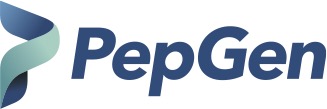PepGen’s has released an update regarding the CONNECT clinical trials for PGN-EDO51 in Duchenne muscular dystrophy (DMD). PepGen has announced a voluntary decision to temporarily pause the Phase 2 CONNECT2-EDO51 study.
What This Means
PepGen received a hold notice by the FDA on their CONNECT1-EDO51 trial (operating in Canada), and have decided to voluntarily suspend the CONNECT2-EDO51 trial (recruiting in the UK). PepGen is taking a strategic approach to gather more data from the CONNECT1-EDO51 study to address the FDA hold before proceeding with the CONNECT2-EDO51 trial in the UK, with the intention of expanding the trial internationally. Currently, there are no patients who have started receiving treatment in the UK under CONNECT2-EDO51.
Action Duchenne have yet to receive a fixed time-frame for the restart of CONNECT2-EDO51 in the UK, but expect an update in Q4 of 2025.
We will continue to monitor and keep you informed with any news on the CONNECT trials, as soon as more information is available.
Key Points:
- Focus on CONNECT1: PepGen will concentrate its efforts on the ongoing Phase 2 CONNECT1-EDO51 study.
- 10 mg/kg Data Expected: Results from the 10 mg/kg dose cohort of the CONNECT1 study are expected in the third quarter of 2025.
- Safety: No new safety issues related to PGN-EDO51 have been observed.
- Reason for Pause: The pause of CONNECT2 will allow PepGen to review the 10 mg/kg data from CONNECT1. This will enable Roche to gather additional safety data, assess the impact of this dose on dystrophin levels, and potentially refine the design of the CONNECT2 study.
About PGN-EDO51
PGN-EDO51 is an experimental treatment being developed by PepGen for Duchenne muscular dystrophy (DMD). It uses PepGen’s unique technology, called Enhanced Delivery Oligonucleotide (EDO), to deliver a therapeutic molecule designed to address the underlying cause of DMD.
Specifically, PGN-EDO51 aims to “skip” exon 51 of the dystrophin gene. This is a targeted approach for approximately 13% of individuals with DMD. By skipping exon 51, the treatment intends to restore the gene’s ability to produce a shorter, but still functional, version of the dystrophin protein, which is missing or defective in DMD.
The U.S. Food and Drug Administration (FDA) has recognized the potential of PGN-EDO51 by granting it both Orphan Drug and Rare Pediatric Disease Designations for treating DMD patients who could benefit from this exon 51-skipping strategy.
CONNECT1-EDO51
An open-label, multiple ascending dose Phase 2 trial being conducted in Canada. CONNECT1 has enrolled two cohorts of boys and young men living with DMD amenable to exon 51 skipping and its endpoints include safety and tolerability, dystrophin production, exon skipping, and muscle tissue concentration. The 10 mg/kg cohort is fully enrolled (n=4) and participants in the 5 mg/kg cohort (n=3) are continuing to dose at that level in the long-term extension phase of the study. The Company has received communication from Health Canada that dosing of patients in the 5 and 10 mg/kg cohorts may continue at their current dose levels and has requested additional information from the Company to address Health Canada’s safety concerns before any further dose escalation or enrollment of any additional participants at the current dose levels.
CONNECT2-EDO51
A double-blind, placebo-controlled, multiple ascending dose Phase 2 trial designed to evaluate PGN-EDO51 at dose levels administered intravenously once every four weeks for 24 weeks in patients with DMD amenable to an exon 51-skipping approach. Endpoints include safety and tolerability, dystrophin production, exon skipping, and functional outcome measures. In December, the Company announced that it had received a clinical hold notice from the FDA regarding its Investigational New Drug application to initiate the CONNECT2 clinical trial in the U.S. The Company is working with the FDA to address its questions regarding supportive data for the dosing levels planned for the patient population.
If you would like to talk about the topic discussed in this article, please do reach out to us at info@actionduchenne.org.


 Roche Shares Top-line Results from Year Two of the EMBARK Phase 3 Clinical Trial.
Roche Shares Top-line Results from Year Two of the EMBARK Phase 3 Clinical Trial.